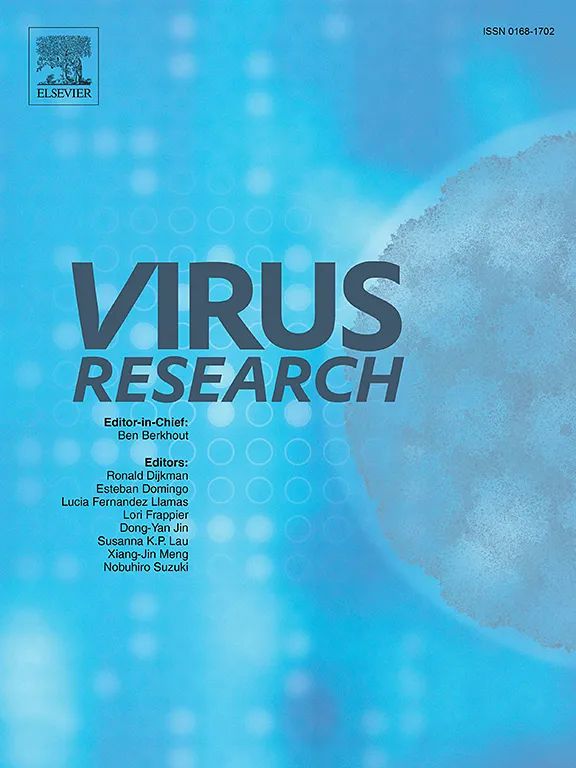肠道病毒通过腺瘤-癌序列途径在结直肠癌进展中的进化。
IF 2.5
4区 医学
Q3 VIROLOGY
引用次数: 0
摘要
结直肠癌(CRC)的全球发病率正在上升。在大多数结直肠癌病例中,结肠癌是由腺瘤-癌序列通路的改变发展而来的。目前,关于肠道病毒对腺瘤-癌序列通路的影响以及随后对结直肠癌的进展和发展的研究很少。本研究收集了正常对照组、腺瘤性息肉组和结直肠腺癌组的粪便和组织样本,以更深入地了解CRC患者肠道病毒的变化并分析其意义。随着结直肠癌从腺瘤向腺癌的进展,粪便和组织样本的病毒样颗粒(vlp)中DNA病毒的数量逐渐增加,不同组间肠道病毒的组成存在明显差异。多物种相关分析揭示了粪便和组织样本中病毒、细菌和真菌之间广泛的相互作用。功能分析还显示,粪便和组织样品的功能通路也发生了显著变化。综上所述,本研究分析了肠内病毒通过腺瘤-癌序列通路在结直肠癌进展过程中的组成和功能变化,这些变化对于探索肠内病毒在结直肠癌发生中的作用具有一定的意义;然而,它们的作用方式和具体机制有待进一步研究。本文章由计算机程序翻译,如有差异,请以英文原文为准。
Evolution of enteric viruses in the progression of colorectal cancer via the adenoma-carcinoma sequence pathway
The global incidence of colorectal cancer (CRC) is increasing. In the majority of CRC cases, colon cancer develops from alterations in the adenoma-carcinoma sequence pathway. Currently, there are few studies regarding the effects of enteric viruses on the adenoma-carcinoma sequence pathway, and subsequently, the progression and development of the CRC. Here, fecal and tissue samples from a normal control group, an adenomatous polyp group, and a colorectal adenocarcinoma group were collected to gain a deeper understanding of the variations in enteric viruses in CRC patients and to analyze their significance. With the progression of CRC from adenoma to adenocarcinoma, the number of DNA viruses in the virus-like particles (VLPs) of fecal and tissue samples gradually increased, and there were distinct differences in the composition of enteric viruses among the different groups. Multiple species correlation analysis revealed extensive interactions among viruses, bacteria, and fungi in fecal and tissue samples. Functional analysis also revealed that the functional pathways in fecal and tissue samples also underwent significant changes. In conclusion, the changes in the composition and function of enteric viruses in the progression of CRC via adenoma-carcinoma sequence pathway were analyzed in this study, and these changes hold certain importance for exploring the role of enteric viruses in the occurrence of this disease; however, their mode of action and specific mechanisms require further investigation.
求助全文
通过发布文献求助,成功后即可免费获取论文全文。
去求助
来源期刊

Virus research
医学-病毒学
CiteScore
9.50
自引率
2.00%
发文量
239
审稿时长
43 days
期刊介绍:
Virus Research provides a means of fast publication for original papers on fundamental research in virology. Contributions on new developments concerning virus structure, replication, pathogenesis and evolution are encouraged. These include reports describing virus morphology, the function and antigenic analysis of virus structural components, virus genome structure and expression, analysis on virus replication processes, virus evolution in connection with antiviral interventions, effects of viruses on their host cells, particularly on the immune system, and the pathogenesis of virus infections, including oncogene activation and transduction.
 求助内容:
求助内容: 应助结果提醒方式:
应助结果提醒方式:


